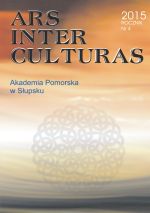PRAKTYCZNE ZASTOSOWANIA TEORII PEDAGOGIKI MIĘDZYKULTUROWEJ W EDUKACJI MUZYCZNEJ
PRACTICAL APPLICATIONS OF INTERCULTURAL PEDAGOGY THEORY IN MUSIC EDUCATION
Author(s): Jarosław ChacińskiSubject(s): Education, Psychology, Music
Published by: Wydawnictwo Naukowe Akademii Pomorskiej w Słupsku
Keywords: intercultural music education; world music; music curriculum; folk music; classical music; artistic stylization
Summary/Abstract: The primary goal of this essay is to describe the connections between intercultural pedagogical theory and its practical applications in music education. The author stresses the significance of this particular field of education and its impact on young people. When anchored in a variety of cultures, musical phenomena provide a unique opportunity to initiate students into a world in which the beauty and aesthetic values of the other are experienced and reflected upon. At the same time, they encourage students to engage in a dialogue with the other through non-verbal channels of communication. Intercultural music education usually follows two conceptual models: one centered on activities, such as singing, dance, and playing musical instruments, and the other, focusing on the listening experience to world music. Intercultural music education is typically pursued using folk music as the most primeval form of human activity. Folk music is also used as an inspiration for musical stylization. It must be emphasized that composers often used this source of inspiration to create outstanding musical works. Sacred music provides a unique means to engage with the spiritual sphere inherent in other cultures. This particular form helps to discover aesthetic qualities in music and explore the depths of religious experience in other people, as well as the space of their religion-driven existential pursuits that are exemplified in music.
Journal: Ars Inter Culturas
- Issue Year: 2015
- Issue No: 4
- Page Range: 13-29
- Page Count: 17
- Language: Polish

